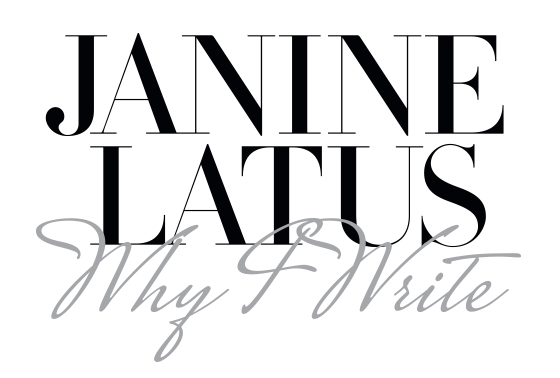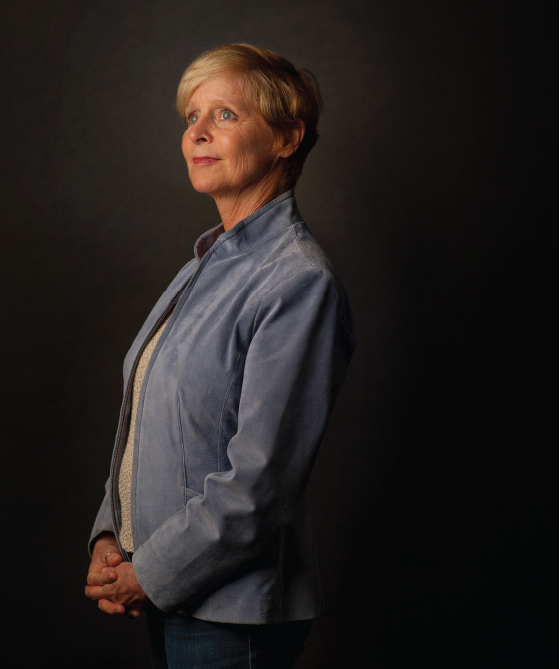Why I Write


Photograph by Rich-Joseph Facun
People ask me why I write and I ask how can you not? How do you make sense of the world, hang it on a pegboard with outlines, turn it over in your hands or pin it to the wall to examine later, without the writing of words?
Words are my tools and my toys. They’re my Play-Doh, my paint and brush and canvas, my hammer and pliers and ratchet set, clicking and ticking as I tighten.
It is the verbs that I love most – the way they twirl and their skirts float out. They leap off cliffs and plunge into rivers, dive into salty surf with fingers stretched out to snatch a flung Frisbee, or slide like otters onto the page.
Nouns are smooth or craggy, or soft as the fur under a kitten’s chin. Some stand well alone – think of the clash in your mouth expectation between ice cream and beer. Often, though, nouns need adjectives. Picture the difference between an azure sea and a steel gray ocean stretching to the horizon. One makes you reach for your jacket, yet both are merely water.
Adverbs are almost always neon announcements that the writer chose the wrong verb. You read, “Suzy left the room quickly.” But if the writer changes it to “Suzy scrambled from the room” or stalked or skipped or stomped, you have story. One scrambles in fear, stalks in real or feigned offense, skips in anticipation or stomps in defiance or anger.
Think of a banana. Tell me, does it smell different if I call it green or overripe? Does it feel heavier in your hand if I say it was lying flat on a counter or deep in the back of the refrigerator, or perhaps still hanging from the tree? Does it need to be eaten?
You’re thinking about that now, for no reason beyond these words. This is the Venturi effect, sucking your memories, your prior bananas, into this simple image – a banana in your hand. I struggle for the words, then you read them through your own filter, one I can neither anticipate nor control. That is why details matter.
I tell aspiring writers this, that the dusty smell of your grandmother’s room comes to me with wisps of White Linen and Poligrip, and the sound of the California surf. If you want instead fried cabbage and incontinence and garbage trucks backing into alleys, put them on the page.
As a child, crayon in fisted hand, I would write about a dog or a squirrel or a talking tree. My kindergarten classmates told the teachers they dreamed of being astronauts and firemen, and they grew up to become accountants and engineers. I said I wanted to be a writer, and here I am, in my quiet chair, rain dripping from the oaks, rearranging words, trying to move an image from my mind into yours.
For me, the greatest gifts are stories. I crave them. Imagine asking, always asking, and people answering, with generosity or shrewdness, their eyes bright as they describe their work, their process, their passion. It is my job and my joy to write footbridges between their world and yours. Or windows, and sometimes doors. I am like Harold with his purple crayon, writing to erase loneliness, to connect person to person and person to place.
Some years ago I wrote a book about my own life, laying bare my vulnerabilities in a way that makes readers squirm and makes me now wish that I had been more squeamish, had hidden more, not sacrificed so much, not laid so much flesh on the altar.
That was deep and difficult writing, most often done at Elliot’s Fair Grounds coffee shop, because if I had done it at home alone I would have wedged myself into the corner between the radiator and the bureau and wept. There are writers who can make you feel without feeling themselves, I’m sure, but I am not one of them. When you as a reader slog through mud it is because I slogged through it first, holding my pen. When I wrote about the glass studio at the Chrysler, I studied the science of glass but also replenished sweltered sweat as I stood between kiln and artist, watching the movement of her hands, the turn of the pole, the puff of air that heats and expands, sliding molecule across molecule into a new form, an awkward lattice. I smelled the smoke of the wet newspaper used to shape the art, and tasted the relief of cold glasses of water. Then I sat in my office typing and deleting, selecting one word and replacing it with the next, working to convey those sensations to you, sitting in your living room or on your porch, or somewhere on a beach, feet sunk in sand.
In those moments when I get it right, I feel a frisson, a visceral thrill like a musical trill that raises the hair on my arms. That, too, is why I write.
Originally published in DISTINCTION, November 15, 2014

I am so glad you gave so much of yourself. It made for a powerful and moving story, one that so many woman can relate to. I am a believer of the teachings of Christ and am not what I would consider a believer of the feminist teachings but I understand how all through our lives, all woman have to deal with an underlying degrading of who they are. There is an intrinsic fear of being truly who we really are; or maybe that’s just me, but I don’t think so.
Keep on doing it, my friend!